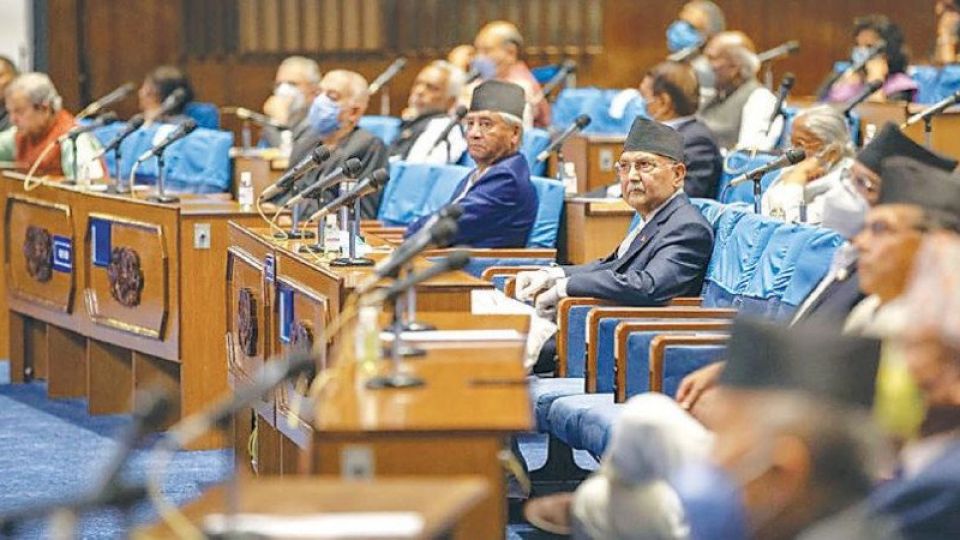March 3, 2023
KATHMANDU – The House meeting has been postponed for almost three weeks for various reasons, including holidays and presidential and vice-presidential elections. However, observers say the postponement has partly to do with the clash for status in the House, including in the seating arrangement for the Nepali Congress and the CPN-UML. The Congress has been occupying opposition seats in the House of Representatives although it has yet to get the main opposition status despite its desperation for the same. In all likelihood, it will cede that space in the next three weeks if its plan of joining the Pushpa Kamal Dahal-led government goes ahead as planned. But the UML is in a hurry to get the status now that it has withdrawn its support to the Dahal government and recalled its ministers.
Ideally, the Parliament should have been the site of ideological clashes between political parties representing people’s interests. Yet ideological orientations do not matter much these days. Having abandoned their ideologies in their quest for power, the political parties have reduced the idea of an opposition to an opportunist waiting in line to be a part of the government by hook or by crook. And the electoral system that leaves little space for a single party majority has helped the parties muddy the water they swim in. The juggernaut that is coalition politics has effectively crushed the spirit of oppositional politics.
Political scientist Lok Raj Baral had predicted this situation, but in a different context, back in 2006 when he wrote in his book Oppositional Politics in Nepal: “The coalition culture that helps erase the conventional ideological dividing line between democrats and communists is likely to be internalised by the competitive parties in view of the emergent complexity of Nepali politics.” This was the time when the Congress, the left parties, and the Maoists were all fighting against the monarchy’s excesses, and a coalition among them was necessary to herald democracy. Baral, however, worried that despite the compulsion of time and situation, building such a coalition would be difficult considering the heterogeneity of the parties and their shifting ideological and tactical positions. A decade and a half later, it is not ideology that precludes the marriage of two ideologically antithetical parties; it is the tactical politics of gaining power and money—the ultimate definition of democratic politics for them—that brings them together.
What is sadder is that the newbies that emerged out of people’s frustrations against the ideological adultery of political parties have immersed themselves in the same ruthless politics they spoke against when out of power. The desperation of the Rastriya Swatantra Party and the Janamat Party, for example, to join the government has shown that they, too, are smitten by the glory that power and position brings. While the former, led by Rabi Lamichhane, was quick to jump out of the government wagon at the slightest inconvenience, the latter, led by CK Raut, hangs on with the hope of getting a more lucrative ministry than the water supply portfolio it got in its first foray into the government. Essentially, democratic norms and values have remained a chimaera in Nepali politics, and there is little hope that this situation will change in the remaining term of the new Parliament.


